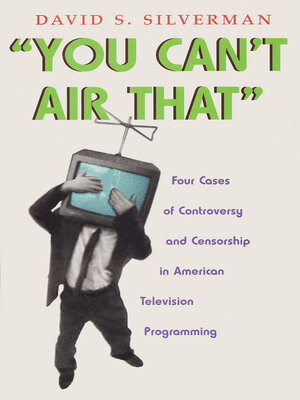You Can't Air That
ebook ∣ Four Cases of Controversy and Censorship in American Television Programming · Television and Popular Culture
By David S. Silverman

Sign up to save your library
With an OverDrive account, you can save your favorite libraries for at-a-glance information about availability. Find out more about OverDrive accounts.
Find this title in Libby, the library reading app by OverDrive.



Search for a digital library with this title
Title found at these libraries:
| Library Name | Distance |
|---|---|
| Loading... |
Broadcast television's presentation of controversial material to a mainstream American audience is no less an issue today than it was in the 1940s. Programming content has always been a product of the interests and motives of network executives, advertisers, and regulatory agencies. In this illuminating book, David S. Silverman assesses four controversial television series from the perspective of media history, examining the censorship present at all networks and the political and intellectual inertia it produces in broadcast television.
Beginning with The Smothers Brothers Comedy Hour from the sixties, the author analyzes the split between the comic team and CBS over remarks they made on the Vietnam War and religion. He also examines The Richard Pryor Show of the seventies, which raised strong questions about network meddling over racial issues. Among recent personalities he discusses activist Michael Moore, whose frank political views wreaked havoc for NBC and Fox in the mid-nineties, and Bill Maher whose candid thoughts on 9/ 11 led ABC to terminate Politically Incorrect.
Drawing on firsthand accounts by the writers, producers, and performers of these programs, Silverman offers an unbiased view of the ways in which censorship, sponsor intimidation, regulation, and network tampering forced American broadcasters to manipulate creative talent and stifle genuine controversy. Shedding new light on the prevalence of censorship in broadcast television, this book helps to reinvigorate the subject of free speech in American society.







